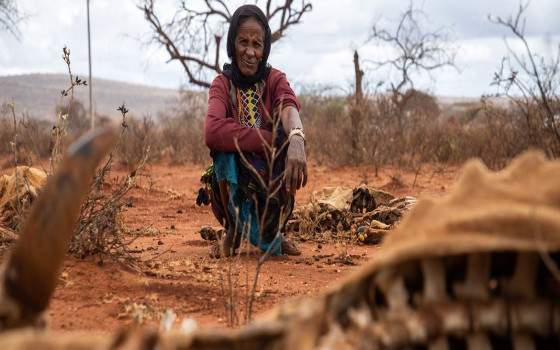
Climate Ambition Summit - a gathering to rally the world, protect the planet and achieve justice..70 percent of deaths from climate-related disasters in 46 least developed countries

- Europe and Arabs
- Friday , 15 September 2023 14:27 PM GMT
New York - Brussels: Europe and the Arabs
World leaders, corporates and experts will meet at the Climate Ambition Summit on September 20 to accelerate the race to protect the planet. According to what was stated in the United Nations daily news bulletin, a copy of which we received this morning
This comes at a time when indicators related to climate action appear to be off track or heading in the wrong direction. Extreme weather events are displacing millions of people, as the world's temperature rises, and out-of-control forest fires continue to cause death and destruction, from Canada to the Greek islands.
Coal, oil and gas contribute to 75% of global greenhouse gas emissions, which continue to fuel the climate crisis.
Although the damage caused by the climate crisis is already enormous, and with global greenhouse gas emissions at record levels, change is possible.
The Climate Ambition Summit is a unique gathering in terms of efforts aimed at confronting the climate crisis. The 193 member states of the United Nations come together to demonstrate the collective global will to make the world more just, greener and cleaner for all. B
Here are the top five things to know about the summit:
1- There is no more time
The climate crisis affects all people and countries. According to the United Nations, half of the world's population already lives in hazardous areas, where they are 15 times more likely to die from related impacts.
70 percent of all deaths due to climate-related disasters in the past 50 years occurred in 46 of the world's least developed countries.
The Secretary-General of the United Nations, António Guterres, said earlier that “the era of global warming has ended, and the era of global thermal boiling has begun. The air is unbreathable, the heat is unbearable, and the level of profits being made from fossil fuels and inaction on climate action is unacceptable.” .
He added, "Leaders must lead. No more hesitation. No more excuses. No more waiting for others to move first. There is simply no longer time for that."
2- Accelerating climate action
When the Secretary-General of the United Nations announced the Climate Ambition Summit last December, he said that he expected the summit not to be meaningless, stressing that “there is no room for backsliders, greenwashers, blame-shifters, or rehashing data from years ago.” previous".
There is a growing number of countries, influencers and leaders who are stepping up their efforts in this regard. Since 2015, the number of countries with national disaster risk reduction strategies has more than doubled. Many of them have also joined initiatives such as the Secretary-General's Climate Action Acceleration Agenda.
The agenda - launched earlier this year - sets out the tasks required in 2023 from government, business and financial leaders to prevent dangerous climate thresholds and bring justice to those on the front lines of the climate crisis.
Through this agenda, the Secretary-General called on countries to “accelerate their efforts,” commit to not adopting new uses of coal, gradually eliminating its use, and reaching the cleaner finish line, that is, achieving a world with net-zero emissions.
“Net zero emissions” means achieving a balance between carbon emitted into the atmosphere and carbon removed from it.
The science clearly shows that in order to avoid the worst effects of climate change and preserve a habitable planet, the increase in global temperatures must be limited to 1.5 degrees Celsius above pre-industrial levels.
2- Accelerating climate action
When the Secretary-General of the United Nations announced the Climate Ambition Summit last December, he said that he expected the summit not to be meaningless, stressing that “there is no room for backsliders, greenwashers, blame-shifters, or rehashing data from years ago.” previous".
There is a growing number of countries, influencers and leaders who are stepping up their efforts in this regard. Since 2015, the number of countries with national disaster risk reduction strategies has more than doubled. Many of them have also joined initiatives such as the Secretary-General's Climate Action Acceleration Agenda.
The agenda - launched earlier this year - sets out the tasks required in 2023 from government, business and financial leaders to prevent dangerous climate thresholds and bring justice to those on the front lines of the climate crisis.
Through this agenda, the Secretary-General called on countries to “accelerate their efforts,” commit to not adopting new uses of coal, gradually eliminating its use, and reaching the cleaner finish line, that is, achieving a world with net-zero emissions.
“Net zero emissions” means achieving a balance between carbon emitted into the atmosphere and carbon removed from it.
The science clearly shows that in order to avoid the worst effects of climate change and preserve a habitable planet, the increase in global temperatures must be limited to 1.5 degrees Celsius above pre-industrial levels.
4- Integrity is important
During the Summit, leaders of businesses, cities, regions and financial institutions are expected to present transition plans in line with UN-backed credibility standards as set out in the UN High-Level Panel of Experts report “Integrity Matters”.
This standard for voluntary net zero pledges is the only one that is fully consistent with limiting global temperature rise to 1.5 degrees Celsius.
The report calls, among other things, for strategies to halt and phase out the use of fossil fuels, reduce emissions, and commit to publicly calling for science-based climate action.
5- Climate justice and support The weak
Achieving climate justice is a goal of the summit, which means looking at the smallest polluters who bear the greatest and most dangerous burden of what is issued by the largest producers of emissions, especially the G20 countries.
In this spirit, summit participants will discuss the challenges and opportunities related to accelerating the decarbonization process from high-emitting sectors, including the energy, shipping, aviation, steel and cement industries.
They are expected to unveil measures to achieve climate justice. On the ground, this means protecting more people from climate disasters by 2027, and doubling funding for adaptation by 2025.
The summit also witnesses the opening of the new Loss and Damage Fund. This fund is the first financing measure of its kind to help vulnerable countries.
The Fund was launched during the twenty-seventh session of the Conference of States Parties to the United Nations Framework Convention on Climate Change (COP27).


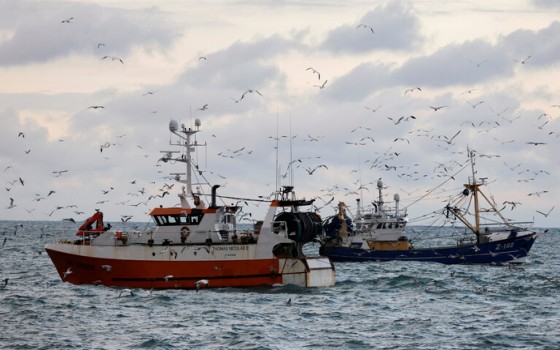

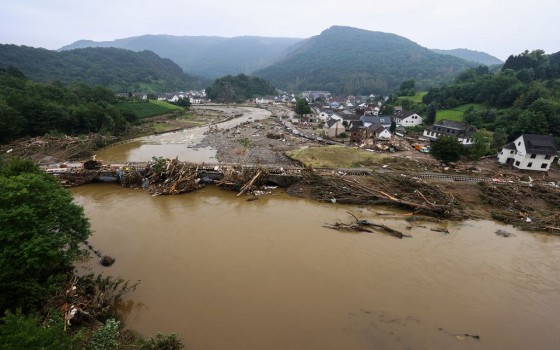
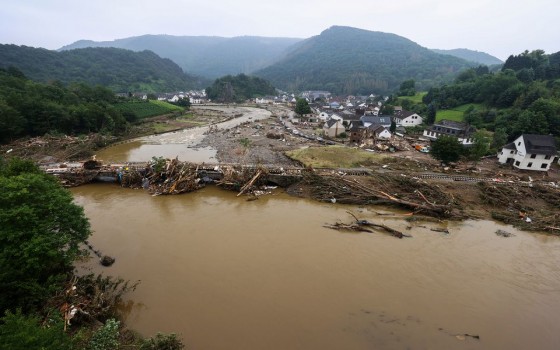


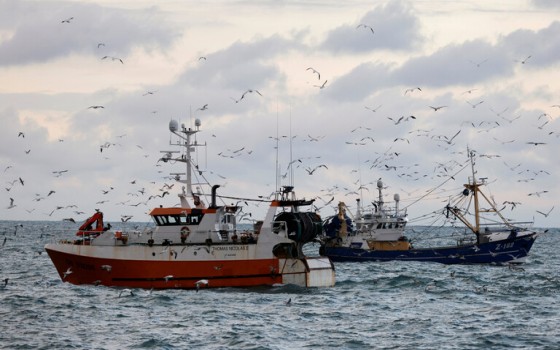



No Comments Found